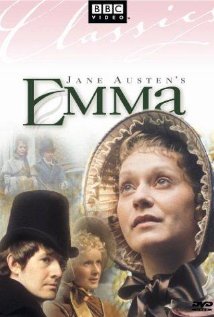
by Sandra Gulland | Jan 16, 2015 | Adventures of a Writing Life, Recommended Books, Movies, Podcasts, etc., Resources for Readers |
“Selkie,” a reader of this blog, left a comment on my “best of 2014” blog post about my love of the 2005 film Pride and Prejudice (staring Kiera Knightly). She said she watches an Austen movie once a week. (I can understand!) Very kindly, she gave me a list to share here. As comprehensive as it is, she notes that is only of the films she owns.
Emma (1972), starring Doran Godwin and John Carson.
Emma (1996), starring Gwyneth Paltrow and Jeremy Northam.
Emma (1996), starring Kate Beckinsale and Mark Strong.
Mansfield Park (1983), starring Sylvestra Le Touzel and Nicholas Farrell.
Northanger Abby (1986), starring Katherine Svhlesinger and Peter Firth.
Persuasion (1971), starring Firbank and Bryan Marshall.
Pride and Prejudice (1940), starring Greer Garson and Laurence Olivier.
Pride and Prejudice (1980), starring Elizabeth Garvie and David Rintoul.
Pride and Prejudice (2003—an extremely modern version), starring Kim Heskin and Orlando Seale.
Pride and Prejudice (2005), starring Kiera Knightly and Matthew Macfadyen.
Sense and Sensibility (1981), starring Irene Richard and Tracey Childs.
Sense and Sensibility (2004), starring Emma Thompson, Kate Winslet, and Hugh Grant.
Related movies:
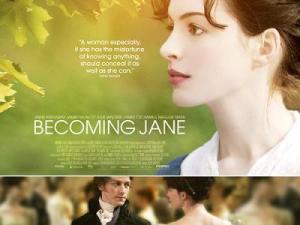
Becoming Jane (2007), starring Anne Hathaway and James McAvoy.
Lost in Austen (2008), starring Jemima Rooper and Elliot Cowan.
About this last one, Selkie notes, “I absolutely love this movie!” That’s high praise indeed; I’m going to try to find it!
Thank you so much, Selkie!
I discovered that I had a 6-book credit on Audible.com that had to be used before the end of this month. Needless-to-say, I went on a book-buying spree. Here’s what I bought:
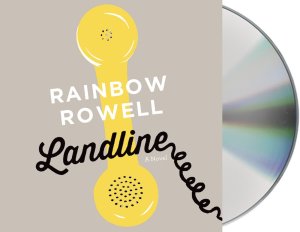
Landline by Rainbow Rowell, because I enjoy YA and I especially enjoy Rowell’s work.
My Life in Middlemarch by Rebecca Mead. On many “best of 2014” lists.
Everything I Never Told You by Celeste Ng. Ditto.
Dept. of Speculation, by Jenny Offill. This unusual novel was on the very interesting New York Times 10 Best Books of 2014 list and I really liked what the NY Times team had to say about it on their Podcast. (It’s a poetic novel, and I’m not sure how well it will work on audible, however.)
All the Light We Cannot See, by Anthony Doerr. This one is on virtually every “best of” list.
Heartburn by Nora Ephron. Because laughing is wonderful, but most of all, because it is narrated by the amazing Meryl Streep.
I listen to “books on tape” (not that they are on tape anymore) when I’m exercising, so this collection should get me in excellent form.

by Sandra Gulland | Dec 19, 2014 | Baroque Explorations, Recommended Books, Movies, Podcasts, etc., The Sun Court Duet |
It’s always a pleasure to see a historical film set in the Court of the Sun King. A Little Chaos, staring Kate Winslet, promises to be sumptuous. I always take issue with the portrayals because I have my own vision of these characters. None the less, I’m eager to watch it, especially to see how Versailles is portrayed in its early days.
The story of A Little Chaos
Madame Sabine De Barra (Kate Winslet) is an unlikely candidate for landscape architect of the still-to-be-completed Palace of Versailles. She has little time for the classical, ordered designs of the man who hires her, the famous architect Le Nôtre (Matthias Schoenaerts). However, as she works on her creation, she finds herself drawn to the enigmatic Le Nôtre and forced to negotiate the perilous rivalries and intricate etiquette of the court of King Louis XIV (Alan Rickman). But Sabine is made of strong stuff; her honesty and compassion help her to overcome both the challenges of her newfound popularity, and an unspeakable tragedy from her past, to win the favour of the Sun King and the heart of Le Nôtre.
Oh, how this makes me long to see such a movie about Claudette or Petite!
Since I wrote this post, and since A Little Chaos has come out there have been mixed reviews. One objection is that the real story of Le Nôtre is quite interesting enough without tarting it up with a love interest. He was the most steady and loyal of men.
From the Guardian: A Little Chaos: leads historical accuracy down the garden path
Only 6.5 on IMDb: too bad!
From the BBC: Costume drama A Little Chaos fails to blossom
Nonetheless, I can’t wait to see A Little Chaos. Have you seen it? What did you think?
by Sandra Gulland | Apr 20, 2012 | Baroque Explorations |
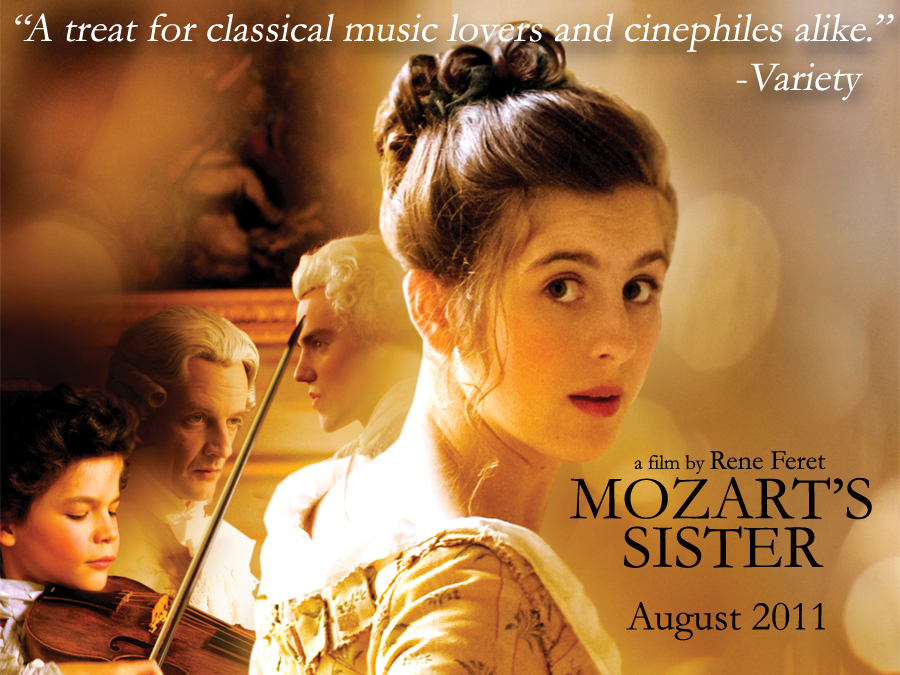
A friend recommended the historical movie Mozart’s Sister, which I also recently enjoyed.
It is based on the real-life Maria Anna Walburga Ignatia Mozart, nicknamed “Nannerl.” She’s a worthy subject: not only was she a talented singer and harpsichord player, but there’s evidence that she was a composer, as well. It’s a tragic story: in her necessary submission to her father and society, she must give up her talents and passions.
I thought the daily life details very well done in this movie — with the exception of lipstick and nailpolish! I wasn’t quite convinced that the actors and actresses were the ones playing their instruments, but I was happy to go along with the fantasy. The character of the Dauphin was memorable, as were all the members of the Mozart family.
It is one of those delicious French movies with long, poetic monologues: I do love these!
In short: I recommend it.
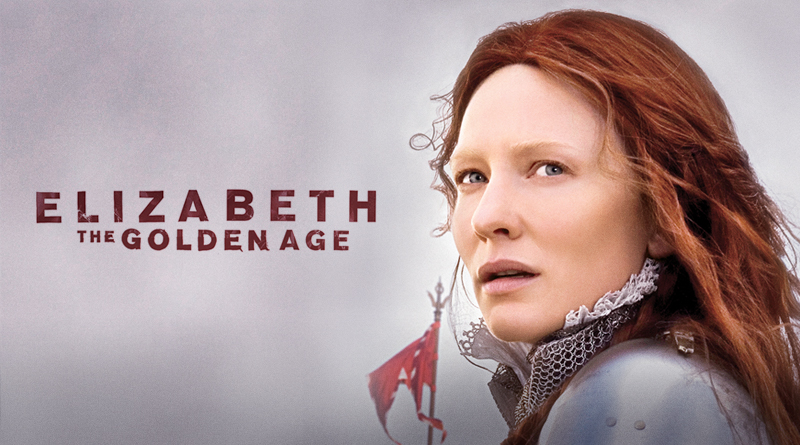
by Sandra Gulland | Apr 1, 2008 | Baroque Explorations |
We went to see Elizabeth last night, and we are glad we did. We may even buy the DVD, to have it at home to watch again. The costuming was spectacular, Cate Blanchett brilliant, the settings and photography fantastic. The script was rarely banal and had some nice subtle touches. But…
But as a researcher into history I had quibbles, the greatest being the portrayal of the Protestants as embracers of individualism and light, and Catholics as in the Dark Ages. They had to delineate the good and the bad in true Hollywood fashion, and the movie is, after all, the story of the war of Catholic Spain against Protestant England, and of course Protestant Elizabeth is the movie’s heroine. But my personal impression is that the Protestants were the extremists: no dancing, no festivals, even the celebration of Christmas was outlawed for a time. No frivolity whatsoever. Clothing had to be sober, and in dark colours. Everything so serious. In a Protestant church, the women sat separate from the men and the ministers preached covered.
So that’s my main quibble, making Catholics out to be so terribly cult-like and evil. Another is that the men and women were so often alone: this would have been highly unlikely. The scene of Elizabeth and Sir Walter sitting on the floor together drinking wine was hard to believe. I think proprieties would have been observed. Also, was it true that the men picked the women up from the crotch in dancing Minor things: no bonnet at bedtime. Men jumping overboard to save their lives: surely they would have been jumping to a certain death. Etc. etc. etc.
But other than that, a wonderful movie, a wonderful Hollywood movie.







